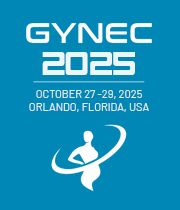Title : Genitourinary syndrome of menopause: Another cause of pelvic pain
Abstract:
Introduction: Genitourinary syndrome of menopause (GSM) is a prevalent condition among postmenopausal women, characterized by various urogenital symptoms, including chronic pelvic pain. Estrogen deficiency is a well- established contributor to GSM-related issues, and vaginal estrogen therapy has demonstrated efficacy in alleviating several GSM symptoms. However, its specific impact on pelvic pain remains underexplored in the existing literature. This study aims to investigate the effectiveness of vaginal estrogen treatment in improving chronic pelvic pain symptoms among postmenopausal women diagnosed with GSM. By conducting a three-month follow-up assessment, we seek to determine whether vaginal estrogen therapy alone can provide significant relief from pelvic pain, thereby addressing an important gap in current treatment knowledge.
Study Methods: A retrospective and prospective chart review was performed on 243 postmenopausal women who presented to our clinic with a chief complaint of chronic pelvic pain and were subsequently diagnosed with urogenital atrophy. Inclusion criteria encompassed females experiencing natural or surgical menopause with a minimum duration of three months of chronic pelvic pain. Data collection spanned from January 1, 2017, to January 1, 2022. We assessed improvement rates at the three-month follow-up using the Patient Global Impression Improvement (PGI-I) and Patient Global Impression of Severity (PGI-S) scales. A 2-point change on the PGI-S scale was considered indicative of improvement.
Results: Of the 60 patients meeting the inclusion criteria, our analysis showed that 27% still reported pelvic pain at the three- month follow-up. On the PGI-S scale, 45% of patients described their pain as mild, 19% as moderate, 10% as severe, and 4% as unchanged. The PGI-I scale revealed that 18% of patients reported their pain as slightly improved, 16% as significantly improved, 14% reported no change, 7% as very much improved, 4% as unchanged, and 1% as very much worsened.
Conclusion: While a substantial portion of postmenopausal women with GSM-related chronic pelvic pain reported significant improvement following three months of vaginal estrogen therapy, a notable proportion continued to experience pain. Our findings suggest that vaginal estrogen may not be a universally effective treatment for pelvic pain in all GSM patients.



